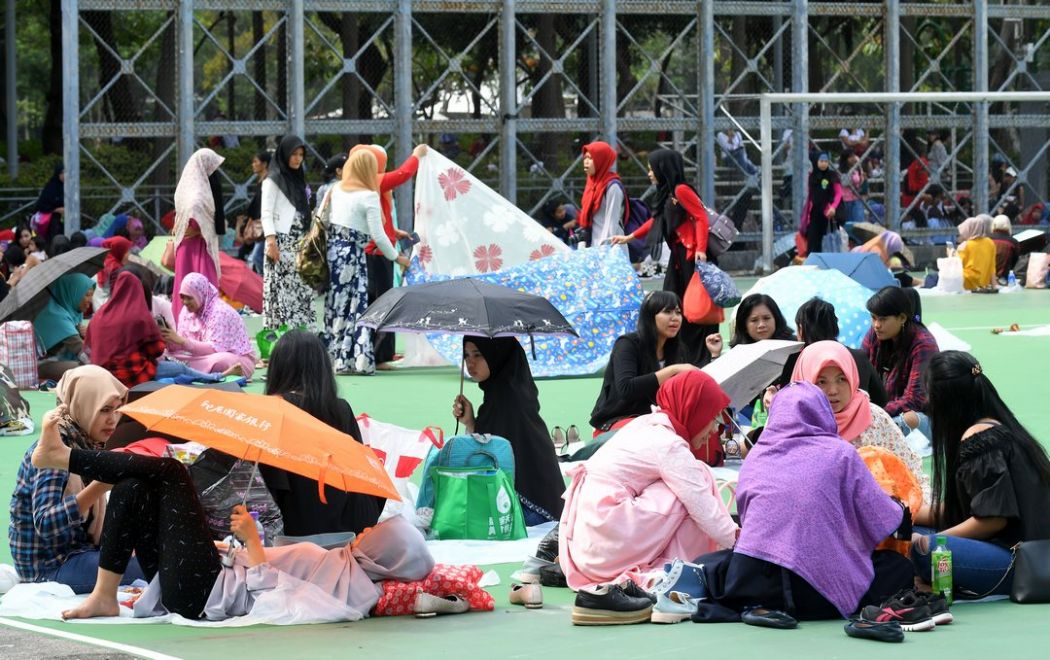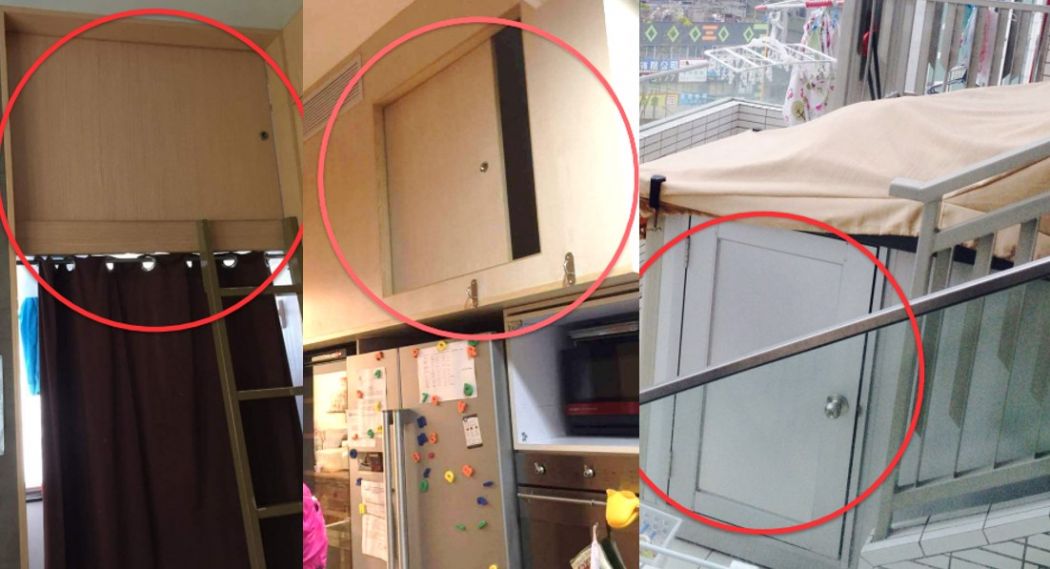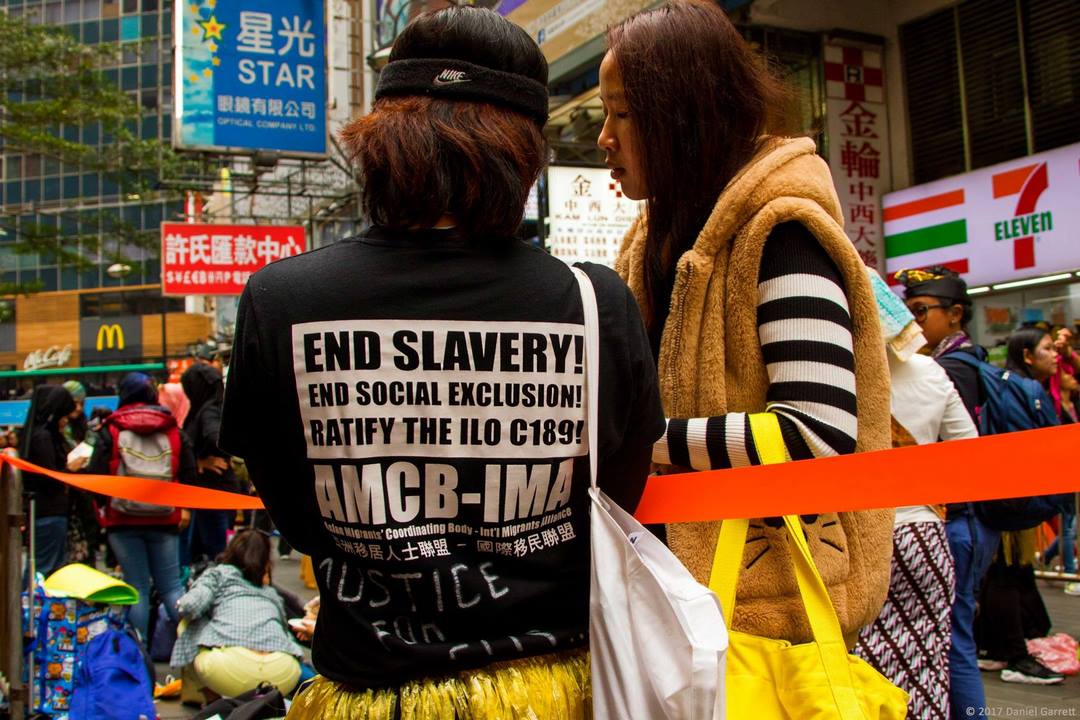For many years, Hong Kong’s most vulnerable foreign residents—domestic workers who mostly hail from Indonesia and the Philippines and who today number some 350,000—have been treated as second-class citizens whose rank exploitation has been largely dismissed and ignored.
Last month, in a shameful High Court ruling, a Hong Kong judge made it official: Second-class citizenship, along with all of the disrespect and maltreatment that implies, is here to stay for those who sweep the floors, wash and iron the clothes and take care of the children, the infirm and the elderly of this city.

Judge Anderson Chow Ka-ming’s ruling came in a lawsuit filed by a domestic helper from the Philippines, Nancy Almorin Luciano, challenging the legality of the Hong Kong government’s requirement that all such workers must live with their employers.
Advocacy groups—not to mention domestic helpers themselves—have long argued that the live-in requirement is a violation of human rights and a recipe for exploitation and abuse, as demonstrated in the sensational case of Erwiana Sulistyaningsih, an Indonesian helper whose prolonged torture at the hands of her Hong Kong employer made international headlines in 2014 and whose legal fight to regain her dignity earned her a place on Time Magazine’s “100 Most Influential People” list in that same year.
Nearly 98 per cent of the domestic helpers in Hong Kong are migrants from Indonesia and the Philippines; other helpers come from India, Thailand, Sri Lanka, Bangladesh and, most recently, Cambodia. Nearly all of these workers are female.
The live-in requirement was introduced in 2003, although it was commonplace for foreign helpers to live with their employers before then. The intended purpose of the new mandate was to prevent foreign helpers—whose work contracts are stipulated as full-time—from moonlighting as part-time workers for another employer, thus taking such part-time opportunities away from local residents.
The rationale did not make much sense in 2003, at which time there was little evidence of locals losing out in the part-time labour market to foreign domestic helpers and, given the repercussions 15 years later, appears downright indefensible at present.

Starting at a salary of HK$4,410 (US$564) a month—the highest in Asia, by the way, and well above what domestic workers are paid in the Middle East—foreign helpers in Hong Kong are a steal for the rich, who often hire more than one, and a calculated bargain for middle class families with children when both the husband and wife work.
The extra income that two working parents bring in more than covers the cost of a helper; meanwhile, the home is clean, the clothes are washed and pressed and the children are cared for.
It’s a great deal for employers, who can also feel good about the fact that their helper—even if she could work as a nurse or teacher in her native country—is earning a much higher salary under their roof in Hong Kong.
With employers and helpers both appearing to benefit financially, it’s easy, not to mention ethically convenient, to turn away from the dreadful pitfalls of the current arrangement. But they are glaringly obvious to all who are willing to see.
Let’s start with the very notion of being legally required to live with your employer. In how many other places in the world might this be considered not just a violation of an employee’s rights but also of human rights?
Now apply that already untenable requirement to space-deprived Hong Kong—a crowded city of 7.4 million people with the most expensive real-estate prices in the world.

Only the rich and famous here own houses; everyone else lives in flats, often small. With one-bedroom, 192-square-foot flats now selling for HK$2.99 million (US$383,000) in the northernmost part of the New Territories near the border with the mainland, the cost of living with a family closer to the centre of the city is a multimillion dollar proposition. Prices are astronomical and space is mercilessly cramped.
For domestic helpers, too often this means sleeping in bathrooms, closets and storage space or sharing a bedroom with children.
A recent survey conducted by Mission for Migrant Workers (MFMW) found that 60 per cent of the 3,000 Hong Kong helpers questioned lived in conditions that threatened their health and personal safety.
Some of the more unsettling examples included a helper who was forced to live in a cubbyhole above a refrigerator, another squeezed into a similarly Lilliputian-sized space above a shower and yet another living in a four-foot-high makeshift room illegally constructed on a balcony.
Beyond the inhumane living conditions, there is the physical and psychological degradation that many helpers must endure.
Erwiana’s case was certainly the most shocking in recent years, but The Discourse of Powerlessness and Repression—a collection of 300 testimonies from helpers who have taken refuge in an MFMW shelter in the city—presents an appalling picture of the systemic abuse faced by this underclass of foreign labour and a stark indictment of city officials for their failure to offer adequate safeguards for their protection.

Written by Hans Ladegaard, head of the English department at Hong Kong Polytechnic University, and published last year, the book brings to brutal and vivid life stories of helpers who work as many as 16 hours a day, sleep in kitchens, toilets and closets and are routinely physically and psychologically abused—slapped, kicked, beaten with an iron, forced to drink water drained from a dirty mop, starved and threatened with death.
It’s a daunting litany of horrible complaints that most people in Hong Kong, despite the infamous example of Erwiana, routinely ignore.
Adding to all this misery, unscrupulous employment agencies are known to demand the first few months of a foreign helper’s salary before offering an employment contract, leaving helpers not only vulnerable to abuse by their Hong Kong employer but also so deeply in hock to their agency that there is no way out of a dire employment situation other than a return to abject poverty in their homeland.
That’s what makes the High Court ruling in favour of the live-in requirement so remarkably callous and purblind.
In his 62-page decision, Judge Chow writes that it “cannot seriously be argued that the imposition of the live-in requirement would directly constitute, or give rise to, a violation of the fundamental rights” of foreign domestic helpers, adding: “If, after coming to work in Hong Kong, the foreign domestic helper finds it unacceptable, for any reason, to reside in his/her employer’s residence, it is well within his/her right or power to terminate the employment.”
In other words, if helpers don’t like their pitiless conditions in Hong Kong, then they can quit and go home, where they will likely be jobless and hopelessly in debt, and see it they like things any better there.

The judge’s ruling clearly looks past the cruelly unacceptable reality on the ground for far too many foreign helpers in Hong Kong.
As for the Hong Kong government, city officials are keen to keep the live-in requirement on the books because, according to an 2013 court ruling that went against another overreaching foreign helper, it prevents foreign domestic workers—unlike every other expatriate worker in Hong Kong—from being considered “ordinarily resident” under the city’s Immigration Ordinance and thus entitled to permanent residency and right of abode after seven years.
In the end, the government’s case for the live-in requirement and against permanent residency for foreign helpers may be couched in legal arguments, but the real, unstated point is as simple as this: Fair or unfair, right or wrong, we don’t want to give 350,000 lowly maids from developing countries right of abode in our city.
Of course, the same mentality prevails in other places in Asia such as Singapore and Malaysia, where stories of abuse of foreign workers are also rife, and also throughout the wealthy Gulf states of the Middle East, where conditions can be even worse.
Note the recent cases of an Indonesian helper in Malaysia who reportedly died of multiple organ failure after being tortured and forced to live outside with her employer’s dog, and of a Filipino helper in Kuwait whose body was found in her employer’s freezer more than a year after she was reported missing.

Maltreatment elsewhere, however, does not justify the same at home. Indeed, Hong Kong’s independent judiciary and common law system set it apart from these other places of abuse and should be a difference maker. Unfortunately, this is not the case.
The High Court ruling puts another sordid judicial stamp of approval on second-class citizenship in a first-world city for foreign domestic workers—who, when you add it all up, comprise 10 per cent of Hong Kong’s work force and make a vital contribution to the lifeblood of this city.
The ruling also virtually assures that there will be more abhorrent cases like Erwiana’s in Hong Kong’s future.
